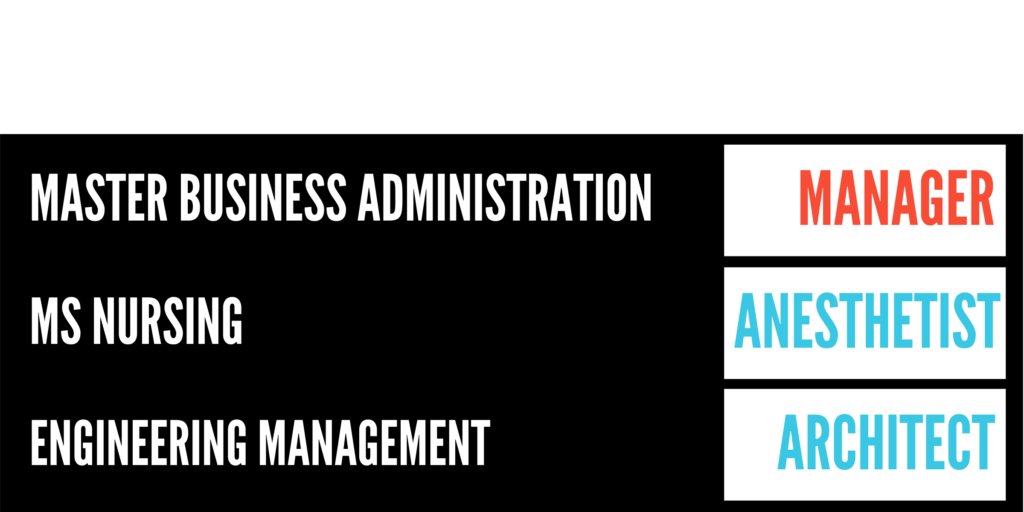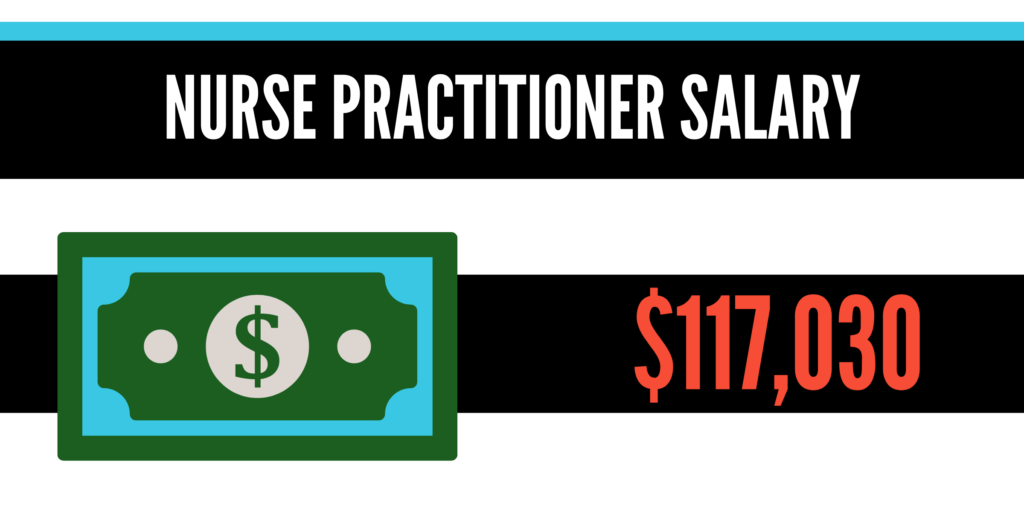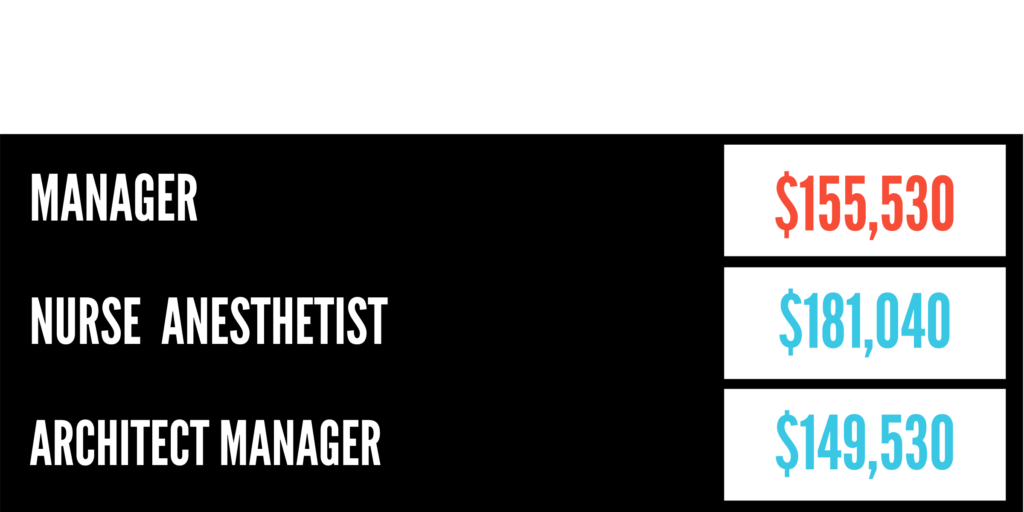As undergraduate education becomes ubiquitous more students look to distinguish themselves through an advanced education in an accredited master’s degree program. But as education becomes increasingly digital and available, the question becomes–is it still worth it?

MOOCs, YouTube, blogs, and other resources make it incredibly convenient for students to build even highly specialized and advanced knowledge from the comfort of their own home. So how can a graduate program compete with this?
Well, in short–this competition has actually driven graduate programs to retool their value propositions in order to appeal to students who might question their value. Today, graduate programs and the universities behind them are well aware of the competition they face–and as such are offering some of the most competitive iterations of these programs that we have ever seen.
Many graduate programs can be completed entirely through online coursework with affordable tuition costs. And moreover, many of these programs are open to reviewing multiple avenues of one’s background to consider admittance, rather than a traditionally rigid adherence to college GPA and GRE scores. These are still certainly weighted as valuable, however the point is that nontraditional students are seeing more acceptance than ever before.
Flexibility is the other major evolution of master’s programs in 2021 and beyond. Many of the country’s most attractive graduate degree programs offer incredibly flexible formats and pacing options that facilitate comfortable options for working students and adults with demanding family responsibilities. Gone are the days where a graduate program necessarily entails a hellacious work-life balance–admittedly this is now more of an intentional result for students who naturally gravitate toward work-heavy lives.
In this article, we will explore the most lucrative careers and which master’s degrees lead to them–as well as how to make the most of a graduate education in order to drive up the earning potential, regardless of what field you choose.
Consider this FAQ for Prospective Graduate Students

If you have a particular program or subject in mind, we recommend that you browse the resources below for your area of interest. At the conclusion of the article we will include a list of our best rankings of graduate programs, so that you can explore the best master’s degree programs within a particular subject.
- AM I LIKELY TO NEED A MASTER’S BEFORE BEING ABLE TO GET A HIGHER-LEVEL POSITION IN THE FIELD OF HEALTH ADMINISTRATION AND MANAGEMENT?
- WILL A MASTER’S IN PUBLIC ADMINISTRATION HELP ME MOVE UP IN GOVERNMENT, GET ME A BETTER SALARY, OR NEITHER?
- WHAT ARE THE SALARY BENEFITS OF GETTING A MASTER’S DEGREE IN CORPORATE COMMUNICATIONS?
- IS A MASTER’S DEGREE NECESSARY FOR MULTIMEDIA DESIGN OR AM I BETTER OFF TAKING INDIVIDUAL CLASSES AND GAINING MORE WORK EXPERIENCE?
- ARE THERE OTHER JOBS I CAN GET WITH A MASTER’S IN ARCHITECTURE DEGREE OTHER THAN BEING AN ARCHITECT?
- HOW IMPORTANT IS A MASTER’S IN INTERIOR DESIGN? WILL PEOPLE HIRE ME WITHOUT ONE?
- AM I LIKELY TO NEED A MASTER’S BEFORE BEING ABLE TO GET A HIGHER-LEVEL POSITION IN THE FIELD OF HEALTH ADMINISTRATION AND MANAGEMENT?
- WHAT SHOULD I TRY TO FIND WORK/INTERNSHIPS IN DURING THE SUMMERS OF MY PATHOLOGY MASTER’S PROGRAM?
MANY JOBS IN HUMAN SERVICES REQUIRE A MASTER’S. HOW HELPFUL WILL AN ASSOCIATE’S DEGREE BE IN GETTING THESE KINDS OF JOBS? - MY UNDERGRADUATE DEGREE IS NOT IN THE SAME FIELD AS WHAT I WANT TO GET MY MASTER’S IN. WILL I BE ABLE TO GET INTO A PROGRAM?
- WHAT AREAS OF THE FINANCE WORLD SHOULD I LOOK FOR A JOB WITH BEFORE GETTING A MASTER’S IN FINANCE?
- HOW MUCH DOES IT COST TO GET A MASTER’S IN SPECIAL EDUCATION?
HOW MUCH CAN I EXPECT TO MAKE IF I HAVE A MASTER’S IN SPECIAL EDUCATION? - WHAT DIFFERENT TYPES OF MASTER’S DEGREES FOR NURSING ARE AVAILABLE?
- WHAT BENEFITS WILL I GET BY HAVING A MASTER’S IN MUSIC FOR MUSIC EDUCATION?
WILL I RECEIVE A FINANCIAL BENEFIT WORTHY OF THE MONEY AND TIME TO GET A MASTER’S IN ACCOUNTING? - IS THERE SOMETHING I CAN DO TO HELP ME DECIDE IF I WANT TO INVEST THE TIME TO GET A MASTER’S IN OCCUPATIONAL THERAPY?
- WHAT KIND OF JOBS ARE THERE WITH A MASTER’S DEGREE IN EPIDEMIOLOGY?
The Opportunity Cost of Graduate School

Graduate school represents a steep investment–both in terms of time and money, not to mention effort. So unsurprisingly many will question whether it will be worth it. There are two angles to consider here.
The Opportunity-Cost of Foregoing a Master’s Degree
On the one hand, there is an opportunity-cost tied to not going to graduate school, particularly in professions of technical skill, advanced knowledge, and expertise. While professionals can certainly pursue professional advancement in the job market without a master’s degree, it is, on average, highly advantageous. You can view this opportunity-cost as a percentage of your salary that was never actualized–in some cases as high as 20% to 30%.
Let’s say your salary without a graduate degree is $80,000. Over ten years, the opportunity cost of forgoing a master’s could be as high as $240,000 (30% of $80,000 multiplied by ten years). In some cases, the opportunity cost might be lower but it also might be higher. This is why it is crucial to understand the value of a master’s degree in your particular field.
The Opportunity-Cost of Earning a Master’s Degree

The opportunity-cost associated with enrolling in a graduate program will often not come close to competing with the opportunity-cost associated with deciding against it, however in order to maximize your earning potential, there are some points to consider. One of the cases in which the opportunity cost might be too high is if one finds a great career opportunity that is time sensitive in nature.
Maybe you are able to start a business or you get lucky with an excellent job straight out of college. The cost of forgoing these things for a master’s degree is certainly high, however in 2021 there is virtually no opportunity-cost associated with earning a master’s degree beyond the tuition. With the advent of online education, students can earn their master’s degree anywhere, anytime–by completing coursework that is often packaged in flexible formats that can accommodate working students with even the most demanding of schedules.
A Master’s Degree Actualizes Ambition

The key takeaway here is that the exact value of a Master’s degree is determined by what you will do with it. This is certainly an obvious brand of common sense, but it bears repeating because it is a point that’s often glossed over.
A V8 engine will do incredible things when placed in a working vehicle. It would do nothing if you placed it in a shopping cart, except weigh it down. Likewise, a Master’s degree represents a striving for excellence beyond that of an undergraduate education. If you are someone who wants to achieve the most possible in your career, then it is simply a good investment.
Choosing the Right Graduate Program

Because the value of a master’s degree depends on what one will do with it, it is crucial that one finds a graduate program that best fits one’s goals and aspirations. While an undergraduate education’s value is in its breadth and expansiveness of study, a graduate education’s value is in its specificity.
Thankfully, there are more flexible and affordable master’s programs than ever before–many of which can be completed entirely online. Before we look at the most profitable career paths, consider these rankings of the best Master’s programs:
Meta Rankings
- 50 BEST ONLINE MASTER’S DEGREES 2021
- EASIEST ONLINE MASTER’S DEGREES
- THE 40 FASTEST ONLINE MASTER’S DEGREE PROGRAMS
Rankings by Field of Study
- THE 20 BEST ONLINE MASTER’S IN ACCOUNTING DEGREE PROGRAMS
- THE 20 BEST ONLINE MASTER’S IN CREATIVE WRITING
- THE 20 BEST ONLINE MASTER’S DEGREES IN RECREATION, TOURISM, AND COACHING
- THE 20 BEST ONLINE MASTER’S IN AERONAUTICAL AND MANUFACTURING ENGINEERING DEGREES
- THE 10 BEST ONLINE MASTER’S IN NURSING EDUCATION
- THE 20 BEST ONLINE MASTER’S DEGREES IN PUBLIC HEALTH
- THE 20 BEST ONLINE MASTER’S DEGREES IN NUTRITION
- THE 20 BEST ONLINE MASTER’S IN INFORMATION SYSTEMS
- THE 20 BEST ONLINE MASTER’S IN COMMUNICATIONS DEGREE PROGRAMS
- THE 20 BEST ONLINE MASTER’S IN HOSPITALITY MANAGEMENT
- THE 20 BEST ONLINE MASTER’S DEGREES IN CYBER SECURITY
- TOP 15 MASTER’S IN FINANCE DEGREE PROGRAMS
- THE 20 BEST ONLINE MASTER’S IN LIBRARY SCIENCE DEGREE PROGRAMS
- THE 25 BEST ONLINE MASTER’S DEGREES IN HOMELAND SECURITY
- THE 25 BEST ONLINE MASTER’S DEGREES IN INFORMATION TECHNOLOGY (IT)
- BEST ONLINE MASTER’S DEGREE PROGRAMS IN CYBERSECURITY
The Highest Paying Graduate Degrees: Breaking Down the Data

A quick flurry of google searches will return a large number of websites that will try to rank the highest paying master’s degree within a given industry. Some of the more ambitious researchers will then look to further breakdown the data to list the highest paying master’s degree in general–not limited to one industry.
The problem with this approach is that the job market is permanently in a state of flux, and as such resulting salaries will fluctuate–sometimes even drastically depending on certain variables. So let us break down some of the most important variables that impact the salaries available for a given position, as well as how to look past specific data to broader realizations, which will be of value to any professional on any career path.
The Variables of Earning Potential and Annual Salaries
Here are three near-universal variables that will affect how much one can earn in one’s career. The extent to which any one of these impacts a particular job will depend on the job itself and the industry in which the job is positioned, however understanding these three factors will help one to reach the upper-tiers of earning potential in one’s field.
Location of the Job
While many variables affect the salaries connected to a particular position or field of work, few exert such force as the geographic location of a position. Particularly in the tech and healthcare industries, many of the nation’s premier hubs for work also present high barriers of inordinate cost of living. So remember to evaluate a city’s cost of living before being seduced by a high-end salary, because oftentimes a high salary offered in an expensive city-metropoles will turn out to be less than a medium salary in an affordable area.
Competitiveness of the Job Market
Competitiveness in a job market is a good thing–but there are some interactions to keep in mind. When a job market does not hold enough professionals to meet the demand of employers and the larger industry, then employers are often forced to further incentivise positions to bring in new professionals to the job market. A recent example of this is the national shortage of nurses, which resulted in many nursing programs offering highly attractive degree packages and overall a bump in prospects for nurses.
On the other hand, if a job market is filled with more than enough qualified professionals then employers can afford to be more picky, which typically equates to a high level of inter-competition between professionals and peers. This is typically the case for traditional job markets that have been around a long time and haven’t seen much growth or innovation–particularly as is the case for office and administrator workers, whose job market makes up around 14% of all jobs in the United States.
Burgeoning Industries and Technology
The third major player in determining the earning potential for one’s career is whether it is positioned in a burgeoning industry or an established industry with burgeoning technology. New industries and industries with burgeoning tech are rife with opportunity, as in both cases job markets will experience growth.
For example, the shipping and freight industry is the poster child of an industry that totally evolved with advent of data science and logistics technology. As the industry adopted new technology, there became an increasing need for professionals who could effectively employ said technology, or logistics specialists.
Data science itself is an example of a totally new industry built upon burgeoning technology. Because data science is one of the strongest tools in the modern era for increasing efficiency and productivity, countless industries are scrambling to adopt the new model of data science.
This has created an entirely new path for professional development–those who apply tech savviness to their careers. With the ability to automate menial tasks, it is now possible for individual professionals to use technology to become more efficient and more productive than any one professional could have been before.
Master’s Level Specializations: Distinguishing Yourself in the Job Market

A graduate level education represents one of the highest levels of inquiry and study attainable outside of a doctorate program. Graduate students delve deeply into advanced subjects to become experts in their respective fields. So how can you maximize your earning potential?
Seeing as how a graduate program is valuable because it enables students to become specialized, further pursuing specialization can be an excellent method for improving one’s prospects.
The Highest Paying Master’s and Careers
Now that we have completed the due diligence in explaining the value of a graduate education and how to maximize said value in terms of one’s earning potential, let’s dive into the most lucrative opportunities to consider.
Master’s of Business Administration (MBA)
An MBA will open many doors for you, and many of these doors lead to highly lucrative careers. The annual median starting salary for MBA graduates is a whopping $115,000 according to a GMAC Trends Survey.
One of the major selling points of an MBA program is its specialized tracks. Whether its healthcare, technology, or even a niche market, many MBA programs will tailor its curriculums to match. And because of this, graduates of an MBA program are perfectly positioned to take on roles of leadership and management, positions that often come with the most seductive salary packages.
What jobs can you get with an MBA? Let’s take a look.
IT Manager
- 2020 Median Pay was $151,150 per year
- 461,000 jobs in the industry
- Growing at a rate of 10% (much faster than national average of 3%)
IT Managers take on positions of leadership–either in the tech industry directly, or in traditional companies that are expanding into technology. The work these professionals do will depend largely on their specialization.
Marketing Manager
- 2020 Median Pay was $141,490 per year
- 314,900 jobs in the industry
- Growing at a rate of 6%
Marketing managers oversee an organization’s marketing and branding efforts, either in the context of a particular project or for the organization’s overall marketing objectives. As such marketing managers typically run a team of marketing professionals in order to meet the organization’s objectives.
Sales Manager
- 2020 Median Pay was $132,290 per year
- 433,800 jobs in the industry
- Growing at a rate of 4%
Sales managers bring their expertise to a team of sales professionals, managing and directing their activities and overall strategies to maximize results.
Master of Science in Nursing (MSN)
As discussed in the above sections, a high demand for a position and a shortage of qualified professionals can cause explosive growth in a job market. The field of nursing represents this fact perfectly. A Master of Science in Nursing empowers students to capitalize on the rising tides of opportunity and to be able to pursue upper echelon positions of “advanced practice” with steeper professional requirements.
There are typically one of two routes to go with an MSN, both of which are highly lucrative.
Nurse Anesthetist
- 2020 Median Pay was $189,190 per year
- 41,960 jobs in the industry
- Growing at a rate of 3.7%
Nurse Anesthetists are experts of administering anesthesia to patients, as well as managing the various aspects of related procedures. One of the reasons for the inordinate salaries attached to this job is the tremendous liability issues associated with it. Anesthesia can have unpredictable effects, and the nurse anesthetist will bare the brunt of any resulting blame.
While highly competitive, the field of nursing anesthetics is one of the most lucrative career paths in the country. Given that many Master’s of Science in Nursing programs can be completed in just two years, this profession delivers an incredible return on investment.
Nurse Practitioner
- 2020 Median Pay was $117,670 per year per year
- 263,400 jobs in the industry
- Growing at a rate of 45%
The rate of growth within this industry is nothing short of absurd. Simply put–if you are a nurse practitioner, you will be able to find a job. Nurse practitioners are charged with managings the various elements of nursing operations within a given hospital or clinic. These professionals act as the go-between for nurses, patients, and doctors. In many ways, the nurse practitioner is the playmaker of the hospital, and oversees much–if not all–of its comings and goings.
Master of Engineering Management
A Master’s of Engineer Management looks to build business savviness in technically proficient engineers who desire to take on positions of leadership in the field. Engineering managers oversee projects and manage teams of architects, engineers, construction workers, and other professionals related to the engineering field.
There is one primary career goal for most professionals in this field.
Architectural and Engineering Manager
- 2020 Median Pay was $149,530 per year per year
- 198,100 jobs in the industry
- Growing at a rate of 3%
These professionals specialize as either architectural or engineering experts–or a combination or both–and employ their expertise to oversee large projects. These professionals can own their own business, work with an engineering or architecture firm, or seek employment with a large organization with regular engineering and architecture needs.
Because the job market is not growing at the rate of others mentioned above, it will be exceedingly important for perspectives of this field to specialize in areas that are of high-demand and will be valued by future clients and employers.
